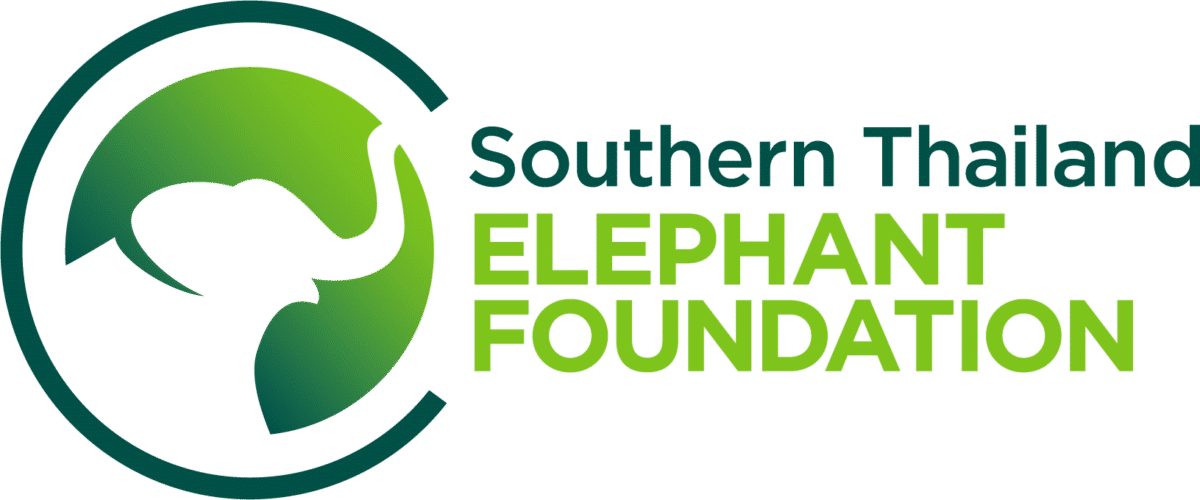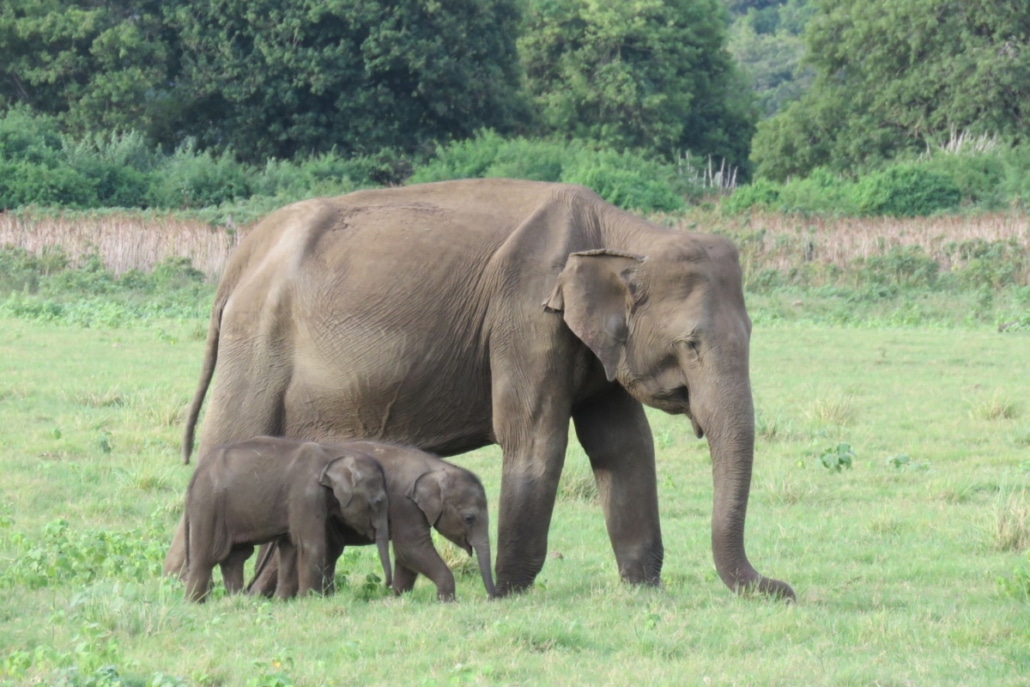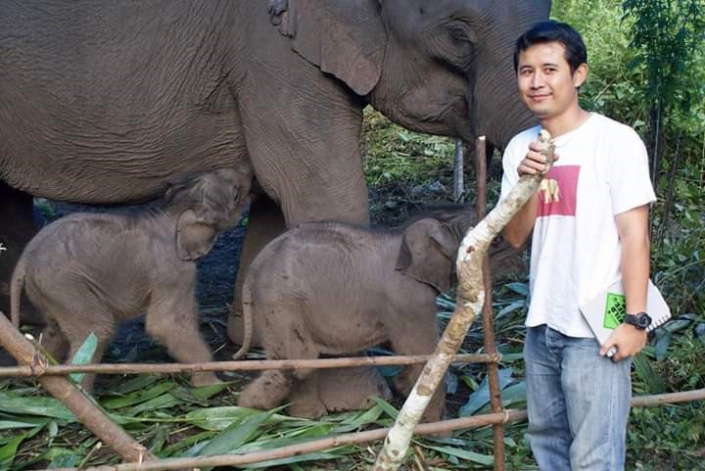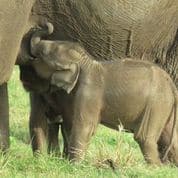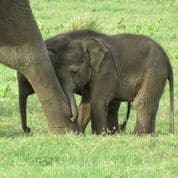Bernadine with her twin babies in Minneriya National Park, Sri Lanka
In July last year, twin baby elephants were observed and photographed in what is believed to be the first sighting ever made of twin calves born to a wild Asian Elephant [1]. Reports have been made of twins born in captivity in India, Nepal, Myanmar and Thailand, but none in the wild. This is potentially because the chances of both twin elephants surviving is very small.
Elephants have a gestation period of 22 months – yes, nearly two years and the longest of any animal. So carrying two foetuses to full term is a challenge in itself and, consequently, twins are often stillborn or born prematurely. Even if they survive, the mother may reject one of them. Furthermore, in the wild, where elephants are often hidden in jungle, the likelihood of seeing twins, even if they did survive for a short time, is minimal.
Bernadine’s twins were spotted in the Minneriya National Park, where herds of elephants come to the large lake there to drink and to feed on the plentiful grass. The exact date of their birth is unknown because the park was closed from March to July 2020 for Covid safety measures. The twins have been named Bhathiya and Bhaguya, a girl and boy, so they are not identical.
Sometimes elephant babies suckle from other females in a herd, which would account for two babies being seen suckling one female. However, close and continuous observation for many hours established that these two babies always suckled from the same female, and followed her closely at all times.
Bernadine now has the challenge of feeding two calves who will be dependent on her milk for nearly two years. Fortunately, she is a relatively young, healthy elephant living in an area that has plentiful fodder all year round, so the twins have a good chance of surviving this critical period and making it through to adulthood. To read more about these twins, see the link [1] below, which is to a journal citation written by Jennifer Pastorini and colleagues from the Centre for Conservation and Research in Sri Lanka.
According to Dr Khajonpat Boonprasert, veterinarian practitioner at the Centre of Elephant and Wildlife Research, Chiang Mai University, Thailand, there have been three pairs of twins born in captivity in Thailand. Of the pair shown in the photograph (below) with Dr Boonprasert, one of them sadly died from ingesting toxic herbicide used in agriculture. The picture was taken in Mae-Sa-Top village, Khun-yuam, in Mae Hong Son Province, about twelve years ago.
[1] https://www.asesg.org/PDFfiles/2020/52-48-Pastorini.pdf
[Click on photos to enlarge and read captions]
